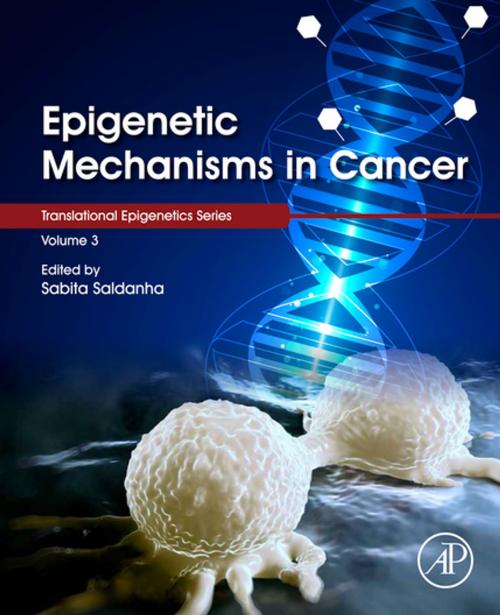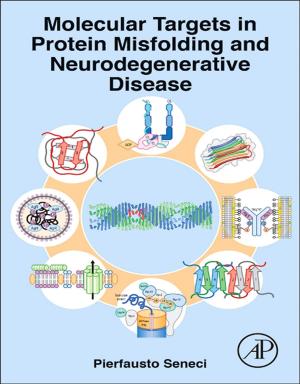Epigenetic Mechanisms in Cancer
Nonfiction, Health & Well Being, Medical, Medical Science, Genetics, Science & Nature, Science, Biological Sciences| Author: | ISBN: | 9780128134603 | |
| Publisher: | Elsevier Science | Publication: | March 5, 2018 |
| Imprint: | Academic Press | Language: | English |
| Author: | |
| ISBN: | 9780128134603 |
| Publisher: | Elsevier Science |
| Publication: | March 5, 2018 |
| Imprint: | Academic Press |
| Language: | English |
Epigenetic Mechanisms in Cancer provides a comprehensive analysis of epigenetic signatures that govern disease development, progression and metastasis. Epigenetic signatures dictating tumor etiologies present an opportunity for biomarker identification which has broad potential for improving diagnosis, prognosis, prediction, and risk assessment. This volumes offers a unique evaluation of signature differences in childhood, sex-specific and race-specific cancers, and in doing so broadly illuminates the scope of epigenetic biomarkers in clinical environments. Chapters detail the major epigenetic process in humans consisting of DNA methylation, histone modifications and microRNAs (miRNAs) involved in the initiation, progression and metastasis of tumors. Also delineated are recent technologies such as next generation sequencing that are used to identify epigenetic profiles (primarily methylation analysis) in samples (normal, benign and cancerous) and which are highly important to the analysis of epigenetic outcomes.
- Offers broad coverage that is applicable to audiences in various area of cancer research - population studies, diagnostics, prognosis, prediction, therapy, risk, etc.
- Provides critical review analysis of the topics that will clarify and delineate the potential roles of epigenetic signatures in cancer management
- Covers basic, as well as, clinical areas of epigenetic mechanisms in tumorigenesis
- Features contributions by leading experts in the field
- Provides comprehensive coverage of current epigenetic signatures involved in the etiology of various cancers and miRNAs
Epigenetic Mechanisms in Cancer provides a comprehensive analysis of epigenetic signatures that govern disease development, progression and metastasis. Epigenetic signatures dictating tumor etiologies present an opportunity for biomarker identification which has broad potential for improving diagnosis, prognosis, prediction, and risk assessment. This volumes offers a unique evaluation of signature differences in childhood, sex-specific and race-specific cancers, and in doing so broadly illuminates the scope of epigenetic biomarkers in clinical environments. Chapters detail the major epigenetic process in humans consisting of DNA methylation, histone modifications and microRNAs (miRNAs) involved in the initiation, progression and metastasis of tumors. Also delineated are recent technologies such as next generation sequencing that are used to identify epigenetic profiles (primarily methylation analysis) in samples (normal, benign and cancerous) and which are highly important to the analysis of epigenetic outcomes.
- Offers broad coverage that is applicable to audiences in various area of cancer research - population studies, diagnostics, prognosis, prediction, therapy, risk, etc.
- Provides critical review analysis of the topics that will clarify and delineate the potential roles of epigenetic signatures in cancer management
- Covers basic, as well as, clinical areas of epigenetic mechanisms in tumorigenesis
- Features contributions by leading experts in the field
- Provides comprehensive coverage of current epigenetic signatures involved in the etiology of various cancers and miRNAs















